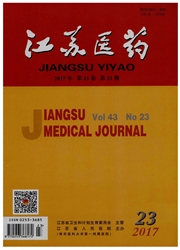

 中文摘要:
中文摘要:
[目的]探索与体重管理相关的知识信念一行为对慢性心力衰竭病人称体重依从性的影响。[方法]采用问卷调查法对216例慢性心力衰竭病人的基线资料、称体重习惯、与体重管理相关的知识一信念一行为进行调查,分析知识一信念一行为因素对慢性心力衰竭病人称体重依从性的影响。[结果]本组12.04%的病人称体重依从性佳;体重管理相关的知识、信念、行为维度得分高低可影响称体重依从性的得分水平(P〈0.05);其中知识维度中的“知道3d内体重增加多少即需要采取应对措施”可影响信念维度中的“有无每天坚持测体重的信念”(P〈0.01),而后者又可影响慢性心力衰竭病人称体重的依从性(P〈0.01)。[结论]慢性心力衰竭病人称体重依从性不佳,应加强对慢性心力衰竭病人体重管理的知一信一行方面的健康教育。
 英文摘要:
英文摘要:
Objective:To explore the influence of knowledge - belief - behavior correlated with weight management on weight monitoring compliance of patients with chronic heart failure (CHF). Methods: A total of 216 CHF patients were investigated on baseline data, weighing habits, and knowledge - belief - behavior correlated with weight management by using questionnaires,and to analyze the influence of knowledge-beliefbehavior on weight monitoring compliance of patients with CHF. Resuits: 12. 04% of patients had good compliance of weight monitoring; scores of knowledge - belief - behavior correlated with weight management could affect score of weighting compliance dimension (P〈0.01); knowledge dimension "know within 3 days how much weight increased the coping strategies should be used"canaffect whether adhere to "the belief of measuring weight daily"(P〈0.01) ,which in turn can affect weighing compliance of chronic heart failure patients (P〈0.01). Conclusion: Weighing compliance of patients with chronic heart failure is poor and knowledge - belief - behavior health education on CHF patients should be strengthened.
 同期刊论文项目
同期刊论文项目
 同项目期刊论文
同项目期刊论文
 期刊信息
期刊信息
